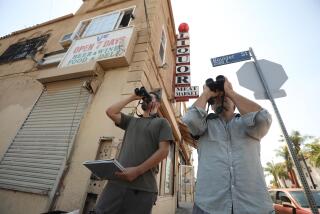Banks, Thrifts Unfair to Blacks, Boston Fed Says
- Share via
BOSTON — Banks and thrifts in Boston have contributed to housing and mortgage credit discrimination in black neighborhoods, according to a report released Thursday by the Federal Reserve Bank of Boston.
The number of mortgage loans issued in black neighborhoods is disproportionately lower than white neighborhoods when compared to the amount of potentially mortgageable properties in both areas, the report concluded.
“This unfortunate pattern persists even after taking into account economic and non-racial characteristics that could be responsible for differences between these neighborhoods,” the report said.
“These other characteristics, including lower incomes, less wealth, lower-valued housing units and less housing development in black neighborhoods, simply do not explain the persistent pattern by race,” the report said.
The report said that because the number of mortgages are vulnerable to ups and downs in the housing market as well as the credit market, “it is difficult to disentangle the role played by lenders, as opposed to buyers, sellers, developers and others, in causing this disparity between black and white neighborhoods.”
The report stopped short of identifying the problem as redlining, a practice by which lenders systematically discriminate against minority neighborhoods. But the report stated flatly that Boston financial institutions are “functioning in a way that hurts black neighborhoods.”
The report suggested that banks and thrifts should lead the way in correcting the problem by reevaluating their lending practices.
The report was based on the analysis of about 48,000 real estate transactions from 1982 to 1987 in Boston’s 60 neighborhoods.
More to Read
Inside the business of entertainment
The Wide Shot brings you news, analysis and insights on everything from streaming wars to production — and what it all means for the future.
You may occasionally receive promotional content from the Los Angeles Times.










